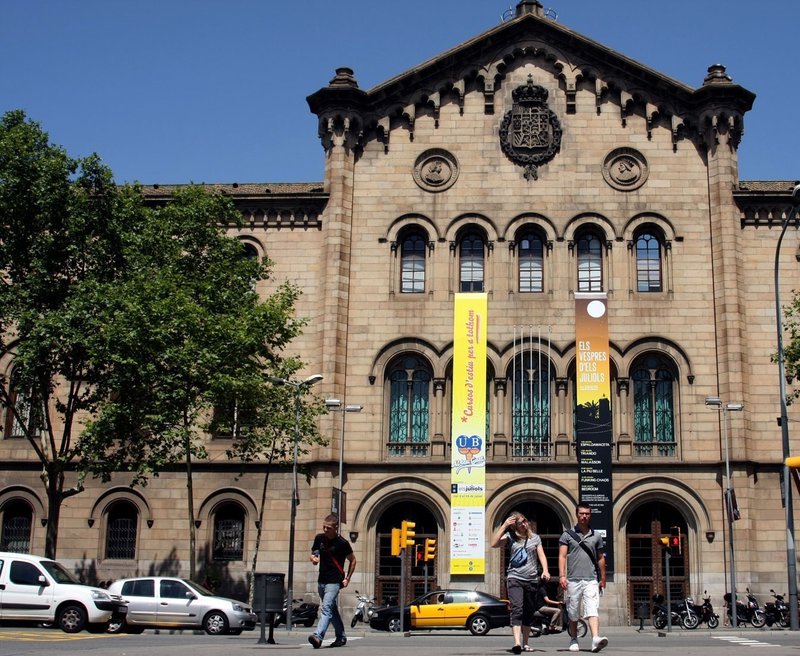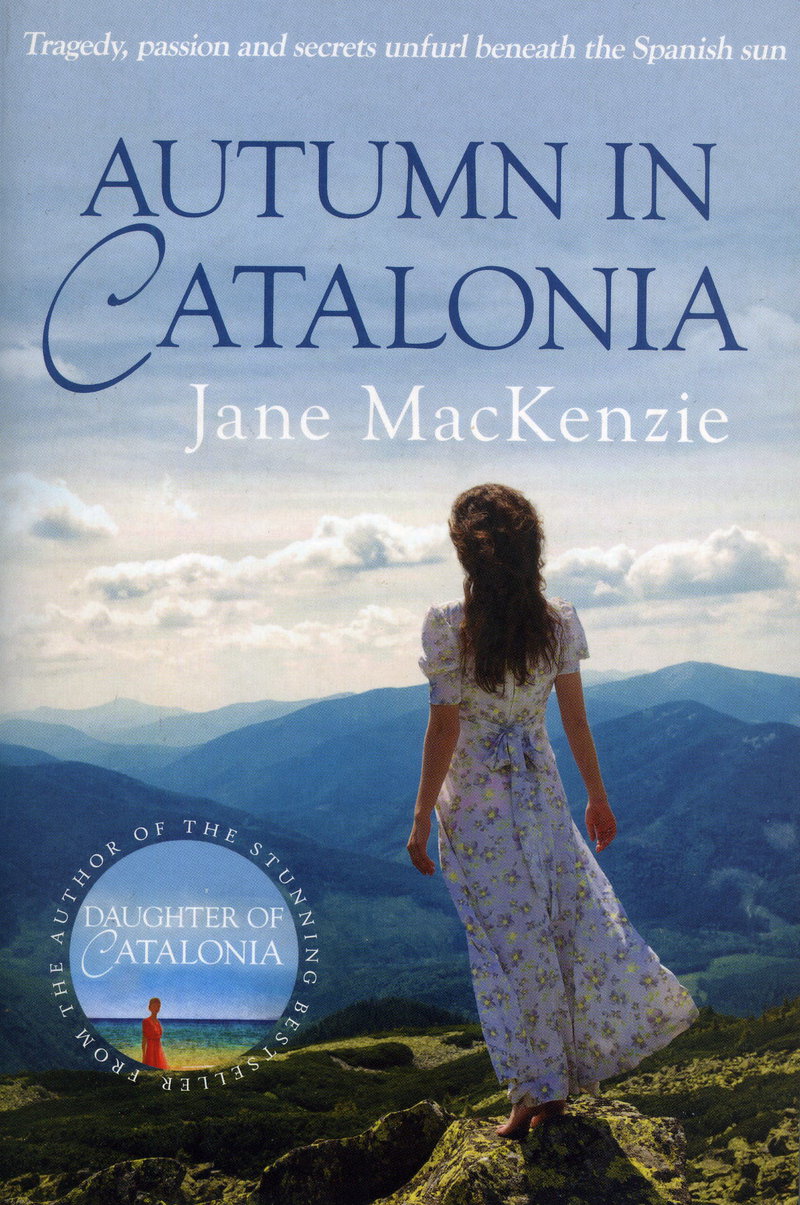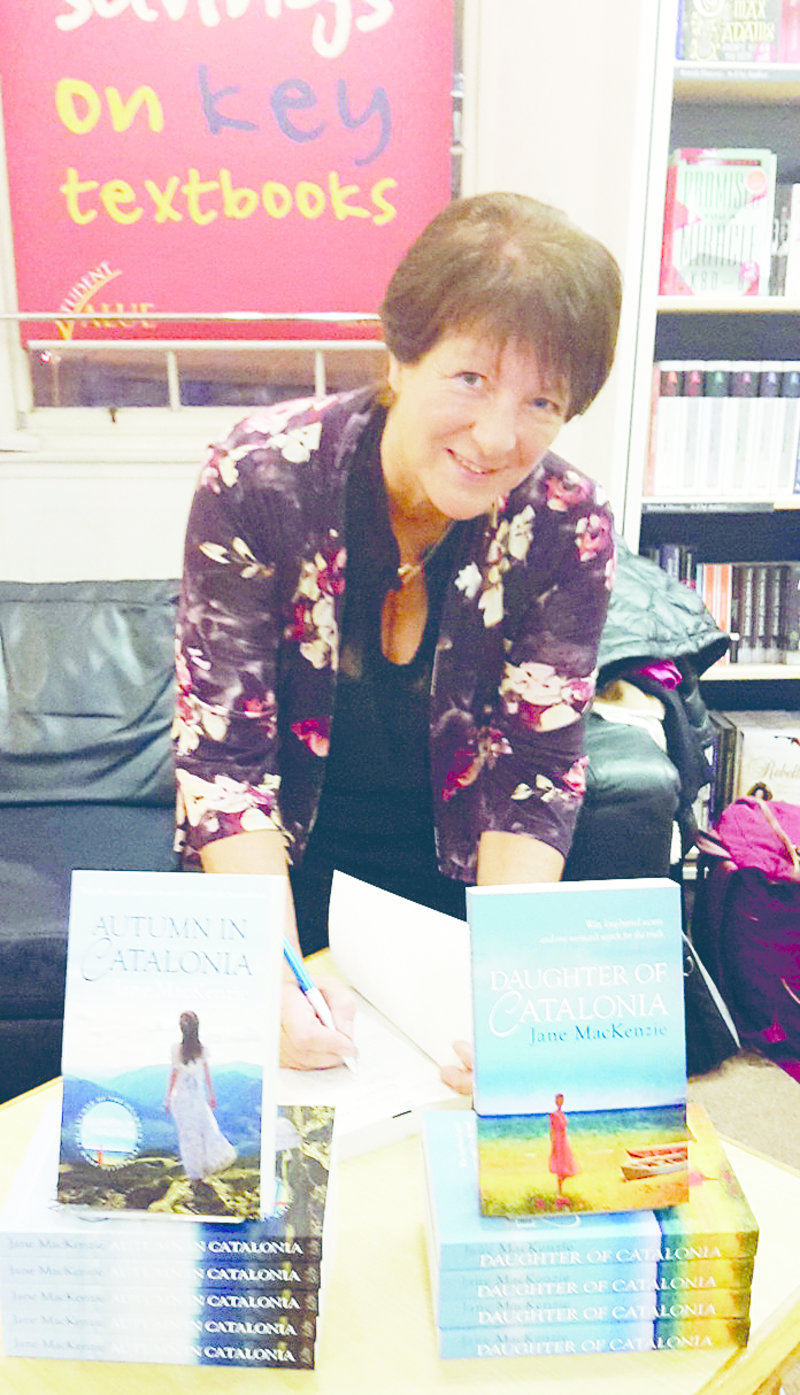Romanticising the fight against Franco
Autumn in Catalonia tells of Carla, an outstanding student at Barcelona University in 1964. She is in love with Luc, an easy-going fellow-student. But there is no oasis of peace in Franco’s Spain
At Luc’s tiny flat in the old quarter, they lead the sort of intellectual and love-life students have always yearned for: they would sit on the floor of the balcony, facing out to sea, the sun sinking into their faces, and drink cheap coffee brewed on the stove... and they would talk – endlessly they would talk. About politics, about music, about poetry, about parents. The Franco regime is celebrating its 25 years in power, but a younger generation is now challenging the 70 year-old dictator. Luc and Carla become involved in student protests.
Carla is happy and strong-minded, but lives in Barcelona under a shadow. Her university fees, board and lodging are paid for by her parents, Sergi and Joana. The problem is that her father is a leading Falangist in Girona. Carla can’t stand him. Sergi is not only a fascist, but a nasty one. This is not to say that nice fascists exist, but that Sergi is particularly nasty, personally violent to his wife and daughter. He is the indisputable bad guy of the book.
Carla gets into trouble with her father for her politics. He is having her watched. She shows her character by facing him down and breaking with her parents. To try and break her, Sergi has Luc arrested and imprisoned without trial.
Thriller
I do not often agree with the Daily Mail, the London rag that supported Hitler in the 1930s and that has changed approach little, but its reviewer’s quote (on this page under the book’s details) is spot on. Autumn in Catalonia is intense and deeply felt. Jane Mackenzie creates a rebellious, attractive heroine in Carla and a moving story.
When Carla separates from her parents, she is forced to turn to the rest of her family. Her grandmother Maria offers her full support, though she is now homeless, moneyless... and pregnant. Most of the family, like Maria, have kept their Republican values despite having lived through 25 years of fascism.
Carla had not known or hardly known many of her family, for they came from a small village and were divided and scattered by the Civil War. Her mother hasn’t talked to the rest of the family since she betrayed them in 1939 by marrying into the regime. Carla discovers that one of her great-uncles was a prominent Republican journalist in 1930s Barcelona, forced into exile by the Civil War defeat.
The novel is something of a thriller, as Carla fights and manoeuvres for Luc’s freedom and tries to understand how her mother could have married a fascist like Sergi at the end of the war. Slowly she uncovers the mystery of Joana’s marriage.
Mackenzie structures her novel very well. Though mainly narrated through Carla, she switches at times to other characters’ points of view and inserts a number of flash-backs to the 1930s, which explain the disasters that divided Carla’s family.
Rose-tinted spectacles
In this series reviewing novels set in Catalonia by English-language writers, several books tackle the effects of the Civil War on Catalan society. Autumn in Catalonia is different from the varied others, in that it is a romantic novel. In Spanish this is a novela rosa, a pink novel, in which the world is seen through rose-tinted spectacles. There is nothing wrong with looking optimistically at the world. The problem, though, is that many a romantic novel falsifies reality and this is one of those that does.
In this fairy-tale, Sergi the baddie is brought low, the lovers are reunited after tear-jerking vicissitudes, a family torn apart by fascism is re-united. Martin, a long-lost, incredibly kind and able cousin, appears from French exile as a deus ex machina to resolve conflict and bring everyone together.
In several ways the novel is not unreal: there is no playing down of the violence of the Franco dictatorship and its fierce anti-Catalanism. For example, there is a brutal scene when the fascists first occupy the family’s village in 1939. Mackenzie leaves her readers in no doubt about the regime’s assault on Catalan language and culture.
It is in the characters that unreality is seen. They are all remarkably kindly and noble (except for Sergi and his thugs). Only Carla’s great-uncle Victor, driven off his land and working in a factory, is psychologically affected by fascism. In reality, the victory of fascism led to generations of silence, it twisted people’s behaviour, destroyed people’s dignity. This is why the movements to dig into the truth about the war are movements not of victims’ children but of grandchildren, who have grown up with post-Franco confidence.
What is missing from Jane Mackenzie’s book is the feel for unjustly ruined lives and all-enveloping fear. Its characters are too undamaged. Even their fear is clean-cut, not abject. It brought to mind another novel set in 1964 Catalonia, Juan Goytisolo’s Señas de identidad (translated to English as Marks of Identity), in which the regime has not just won, but has crushed lives and perverted Catalan society. Unlike Goytisolo’s characters, Mackenzie’s are uncrushed and unperverted.
Catalonia is not an evoked reality but a dreamed backdrop for her novel. Girona (in this series, many foreign writers have been inspired by the beauties of the city) is well described, with the contrast drawn out between the poverty of the working-class and the freedoms of the children of the rulers. Even among these rich kids in the new cafeterias, Mackenzie insists on the terrible, subservient role of women. There is a fine feminist streak in her. The women are the protagonists and movers in this novel. Modern romantic novels no longer feature willowy girls (despite the cover) who melt at the approach of a prince, but strong women rebels like Carla.
Much to enjoy in a moving, well-structured novel. Just don’t expect to find out the truth about lives under the dictatorship.
Jane Mackenzie
Jane Mackenzie is widely travelled. She has been a French and English teacher in Africa, Asia and Bahrain. She has worked in Geneva. Now she lives between Cotlliure (Collioure) in North Catalonia and the Highlands of Scotland.
Autumn in Catalonia is her second novel, following Daughter of Catalonia. She has a web-site: janemackenzie.co.uk






